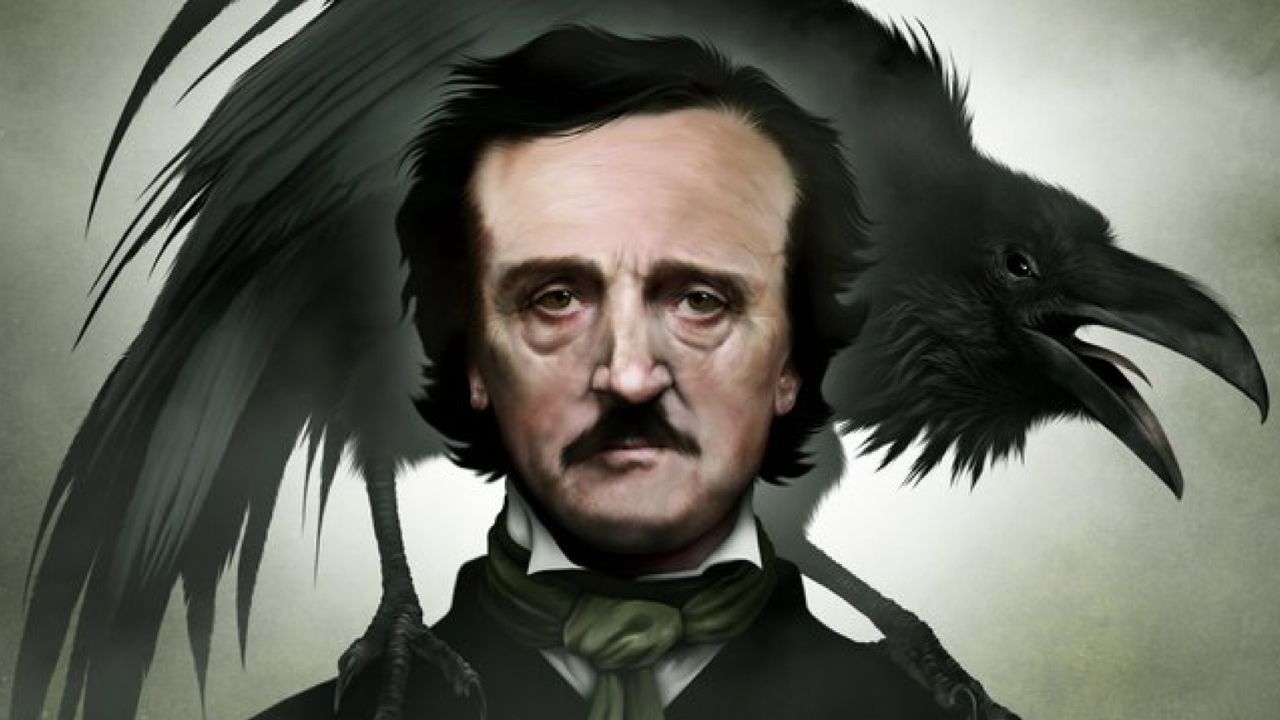- Synopsis
- Psychological Intricacy
- Stylistic Brilliance
- Legacy and Influence
- Conclusion
- The Tell-Tale Heart Full Story
- Interview with Edgar Alan Poe
- Mr. Poe, could you share with us some insights into your early life and how it influenced your writing career?
- When did you first realize your penchant for writing dark and eerie tales, and what inspired you to explore the human psyche in such a profound manner?
- “The Tell-Tale Heart” is often regarded as a masterpiece. What inspired you to write this particular story, and what were your intentions behind delving into the mind of a disturbed narrator?
- The protagonist of “The Tell-Tale Heart” is an unreliable narrator whose sanity is in question. How did you approach creating such a psychologically complex character?
- Obsession and paranoia play significant roles in “The Tell-Tale Heart.” Can you elaborate on how you developed these themes and why you found them crucial to the story?
- The guilt experienced by the narrator is symbolized by the relentless heartbeat. How did you come up with this symbolism, and what effect were you hoping to achieve?
- Your writing style in “The Tell-Tale Heart” is known for its chilling effect. Could you shed light on the techniques you employed to create a sense of suspense and unease throughout the story?
- Gothic elements are prevalent in many of your works, including “The Tell-Tale Heart.” What drew you to the Gothic tradition, and how did it contribute to the story’s overall ambiance?
- “The Tell-Tale Heart” has had a significant influence on the genre of psychological thrillers. How does it feel to know that your work has inspired countless authors and filmmakers?
- Can you tell us about any specific adaptations or interpretations of “The Tell-Tale Heart” that have impressed you or stayed true to your original vision?
- How do you think the exploration of the human psyche and the dark corners of the mind in “The Tell-Tale Heart” resonate with readers even today?
- “The Tell-Tale Heart” addresses the fine line between sanity and insanity. What are your personal thoughts on this subject, and how did you incorporate your views into the story?
- Your narrator in “The Tell-Tale Heart” takes on the role of judge, jury, and executioner. What deeper meanings or commentary were you trying to convey through this particular dynamic?
- In your opinion, what makes “The Tell-Tale Heart” a timeless tale that continues to captivate readers after all these years?
- Were there any challenges you faced while writing “The Tell-Tale Heart,” and how did you overcome them?
- As an author known for your macabre and dark storytelling, what draws you to explore the themes of guilt and consequence in your works, including “The Tell-Tale Heart”?
- “The Tell-Tale Heart” is just one of many remarkable stories you’ve written. Are there any other personal favorites among your works that you would like to share with us?
- How do you think your experiences and struggles in your personal life influenced the dark and melancholic themes that pervade your writings?
- If you had the chance to revise or change something about “The Tell-Tale Heart” today, would you make any alterations? If so, what would they be?
- Finally, what message or lasting impression do you hope readers take away from “The Tell-Tale Heart” and your body of work as a whole?
Edgar Allan Poe is an enduring icon of literature, renowned for his eerie tales that traverse the shadowy paths of the human psyche. Among his profound body of work, “The Tell-Tale Heart” stands as a timeless testament to his mastery of the psychological thriller. This article takes an in-depth look at this captivating short story, unraveling its haunting narrative, psychological complexity, and enduring literary influence.
Synopsis
“The Tell-Tale Heart” is a chilling first-person narrative of an unnamed protagonist who endeavors to convince the reader of their sanity while simultaneously recounting a murder they committed. Driven by an irrational fixation on an old man’s “vulture-like” eye, the narrator meticulously plans and executes the murder, only to be undone by the guilt-ridden hallucination of the victim’s relentless heartbeat.
Psychological Intricacy
Poe’s genius lies in his ability to delve deep into the narrator’s fractured psyche, offering a detailed depiction of their descent into madness.
- Obsession and Paranoia: The narrator’s fixation on the old man’s eye underscores their obsessive-compulsive tendencies. Their paranoia heightens the sense of suspense, crafting an atmosphere of dread.
- Duality of Sanity and Insanity: The narrator’s insistence on their sanity while recounting an act of irrational violence amplifies the story’s psychological tension. This duality manifests the complexity of the human psyche, blurring the line between sanity and insanity.
- Guilt and Consequence: The hallucination of the old man’s incessant heartbeat symbolizes the narrator’s overwhelming guilt. Their attempt to escape external judgment leads to an ironic twist—they become their judge, jury, and executioner.
Stylistic Brilliance
Poe’s stylistic choices contribute significantly to the story’s haunting ambiance.
- Unreliable Narrator: The unreliable first-person narration intensifies the story’s psychological thriller aspect. The narrator’s distorted perspective manipulates the reality, leaving the reader questioning their credibility.
- Gothic Elements: The utilization of dark, gloomy settings and grotesque imagery typifies the Gothic tradition, enhancing the story’s eerie tone.
- Suspenseful Pacing: The slow, meticulous recounting of the murder plan and execution ratchets up suspense, keeping readers on edge.
Legacy and Influence
“The Tell-Tale Heart” has had a profound influence on the genre of psychological thrillers.
- Genre Influence: By focusing on the inner workings of a disturbed mind, Poe revolutionized the genre, inspiring authors like Robert Bloch (“Psycho”) and Thomas Harris (“The Silence of the Lambs”).
- Adaptations: The story’s compelling narrative and psychological depth have made it a popular choice for adaptations in film, theatre, and radio.
- Cultural Impact: The tale’s enduring popularity highlights our fascination with the macabre and the exploration of human psyche’s dark corners.
Conclusion
“The Tell-Tale Heart” remains an unrivaled masterpiece in psychological thriller literature. Its haunting narrative, intricately drawn protagonist, and masterful exploration of guilt and insanity continue to captivate readers, asserting Edgar Allan Poe’s indelible mark on the literary world. As we continue to explore this tale, we are reminded of the power of literature to delve into the human psyche’s depths, unearthing truths that are as unsettling as they are profoundly human. It is a tale that compels us to confront our understanding of sanity, morality, and the darkness that lurks in the corners of the human mind, offering an unnerving yet illuminating exploration of the human condition.
The Tell-Tale Heart Full Story
True! — nervous — very, very dreadfully nervous I had been and am; but why will you say that I am mad? The disease had sharpened my senses — not destroyed — not dulled them. Above all was the sense of hearing acute. I heard all things in the heaven and in the earth. I heard many things in hell. How, then, am I mad? Hearken! and observe how healthily — how calmly I can tell you the whole story.
It is impossible to say how first the idea entered my brain; but once conceived, it haunted me day and night. Object there was none. Passion there was none. I loved the old man. He had never wronged me. He had never given me insult. For his gold I had no desire. I think it was his eye! yes, it was this! One of his eyes resembled that of a vulture — a pale blue eye, with a film over it. Whenever it fell upon me, my blood ran cold; and so by degrees — very gradually — I made up my mind to take the life of the old man, and thus rid myself of the eye forever.
Now this is the point. You fancy me mad. Madmen know nothing. But you should have seen me. You should have seen how wisely I proceeded — with what caution — with what foresight — with what dissimulation I went to work! I was never kinder to the old man than during the whole week before I killed him. And every night, about midnight, I turned the latch of his door and opened it — oh, so gently! And then, when I had made an opening sufficient for my head, I put in a dark lantern, all closed, closed, so that no light shone out, and then I thrust in my head. Oh, you would have laughed to see how cunningly I thrust it in! I moved it slowly — very, very slowly, so that I might not disturb the old man’s sleep. It took me an hour to place my whole head within the opening so far that I could see him as he lay upon his bed. Ha! — would a madman have been so wise as this? And then, when my head was well in the room, I undid the lantern cautiously — oh, so cautiously — cautiously (for the hinges creaked) — I undid it just so much that a single thin ray fell upon the vulture eye. And this I did for seven long nights — every night just at midnight — but I found the eye always closed; and so it was impossible to do the work; for it was not the old man who vexed me, but his Evil Eye. And every morning, when the day broke, I went boldly into the chamber, and spoke courageously to him, calling him by name in a hearty tone, and inquiring how he had passed the night. So you see he would have been a very profound old man, indeed, to suspect that every night, just at twelve, I looked in upon him while he slept.
Upon the eighth night I was more than usually cautious in opening the door. A watch’s minute hand moves more quickly than did mine. Never before that night had I felt the extent of my own powers — of my sagacity. I could scarcely contain my feelings of triumph. To think that there I was, opening the door, little by little, and he not even to dream of my secret deeds or thoughts. I fairly chuckled at the idea; and perhaps he heard me; for he moved on the bed suddenly, as if startled. Now you may think that I drew back — but no. His room was as black as pitch with the thick darkness, (for the shutters were close fastened, through fear of robbers,) and so I knew that he could not see the opening of the door, and I kept pushing it on steadily, steadily.
I had my head in, and was about to open the lantern, when my thumb slipped upon the tin fastening, and the old man sprang up in the bed, crying out — “Who’s there?”
I kept quite still and said nothing. For a whole hour I did not move a muscle, and in the meantime I did not hear him lie down. He was still sitting up in the bed listening; — just as I have done, night after night, hearkening to the death watches in the wall.
Presently I heard a slight groan, and I knew it was the groan of mortal terror. It was not a groan of pain or of grief — oh, no! — it was the low stifled sound that arises from the bottom of the soul when overcharged with awe. I knew the sound well. Many a night, just at midnight, when all the world slept, it has welled up from my own bosom, deepening, with its dreadful echo, the terrors that distracted me. I say I knew it well. I knew what the old man felt, and pitied him, although I chuckled at heart. I knew that he had been lying awake ever since the first slight noise, when he had turned in the bed. His fears had been ever since growing upon him. He had been trying to fancy them causeless, but could not. He had been saying to himself — “It is nothing but the wind in the chimney — it is only a mouse crossing the floor,” or “it is merely a cricket which has made a single chirp.” Yes, he has been trying to comfort himself with these suppositions: but he had found all in vain. All in vain; because Death, in approaching him had stalked with his black shadow before him, and enveloped the victim. And it was the mournful influence of the unperceived shadow that caused him to feel — although he neither saw nor heard — to feel the presence of my head within the room.
When I had waited a long time, very patiently, without hearing him lie down, I resolved to open a little — a very, very little crevice in the lantern. So I opened it — you cannot imagine how stealthily, stealthily — until, at length a single dim ray, like the thread of the spider, shot from out the crevice and fell upon the vulture eye.
It was open — wide, wide open — and I grew furious as I gazed upon it. I saw it with perfect distinctness — all a dull blue, with a hideous veil over it that chilled the very marrow in my bones; but I could see nothing else of the old man’s face or person: for I had directed the ray as if by instinct, precisely upon the damned spot.
And now have I not told you that what you mistake for madness is but over acuteness of the senses? — now, I say, there came to my ears a low, dull, quick sound, such as a watch makes when enveloped in cotton. I knew that sound well, too. It was the beating of the old man’s heart. It increased my fury, as the beating of a drum stimulates the soldier into courage.
But even yet I refrained and kept still. I scarcely breathed. I held the lantern motionless. I tried how steadily I could maintain the ray upon the eye. Meantime the hellish tattoo of the heart increased. It grew quicker and quicker, and louder and louder every instant. The old man’s terror must have been extreme! It grew louder, I say, louder every moment! — do you mark me well? I have told you that I am nervous: so I am. And now at the dead hour of the night, amid the dreadful silence of that old house, so strange a noise as this excited me to uncontrollable terror. Yet, for some minutes longer I refrained and stood still. But the beating grew louder, louder! I thought the heart must burst. And now a new anxiety seized me — the sound would be heard by a neighbor! The old man’s hour had come! With a loud yell, I threw open the lantern and leaped into the room. He shrieked once — once only. In an instant I dragged him to the floor, and pulled the heavy bed over him. I then smiled gaily, to find the deed so far done. But, for many minutes, the heart beat on with a muffled sound. This, however, did not vex me; it would not be heard through the wall. At length it ceased. The old man was dead. I removed the bed and examined the corpse. Yes, he was stone, stone dead. I placed my hand upon the heart and held it there many minutes. There was no pulsation. He was stone dead. His eye would trouble me no more.
If still you think me mad, you will think so no longer when I describe the wise precautions I took for the concealment of the body. The night waned, and I worked hastily, but in silence. First of all I dismembered the corpse. I cut off the head and the arms and the legs.
I then took up three planks from the flooring of the chamber, and deposited all between the scantlings. I then replaced the boards so cleverly, so cunningly, that no human eye — not even his — could have detected any thing wrong. There was nothing to wash out — no stain of any kind — no blood-spot whatever. I had been too wary for that. A tub had caught all — ha! ha!
When I had made an end of these labors, it was four o ‘clock — still dark as midnight. As the bell sounded the hour, there came a knocking at the street door. I went down to open it with a light heart, — for what had I now to fear? There entered three men, who introduced themselves, with perfect suavity, as officers of the police. A shriek had been heard by a neighbor during the night; suspicion of foul play had been aroused; information had been lodged at the police office, and they (the officers) had been deputed to search the premises.
I smiled, — for what had I to fear? I bade the gentlemen welcome. The shriek, I said, was my own in a dream. The old man, I mentioned, was absent in the country. I took my visitors all over the house. I bade them search — search well. I led them, at length, to his chamber. I showed them his treasures, secure, undisturbed. In the enthusiasm of my confidence, I brought chairs into the room, and desired them here to rest from their fatigues, while I myself, in the wild audacity of my perfect triumph, placed my own seat upon the very spot beneath which reposed the corpse of the victim.
The officers were satisfied. My manner had convinced them. I was singularly at ease. They sat, and while I answered cheerily, they chatted of familiar things. But, ere long, I felt myself getting pale and wished them gone. My head ached, and I fancied a ringing in my ears: but still they sat and still chatted. The ringing became more distinct: — it continued and became more distinct: I talked more freely to get rid of the feeling: but it continued and gained definitiveness — until, at length, I found that the noise was not within my ears.
No doubt I now grew very pale; — but I talked more fluently, and with a heightened voice. Yet the sound increased — and what could I do? It was a low, dull, quick sound — much such a sound as a watch makes when enveloped in cotton. I gasped for breath — and yet the officers heard it not. I talked more quickly — more vehemently; but the noise steadily increased. I arose and argued about trifles, in a high key and with violent gesticulations; but the noise steadily increased. Why would they not be gone? I paced the floor to and fro with heavy strides, as if excited to fury by the observations of the men — but the noise steadily increased. Oh God! what could I do? I foamed — I raved — I swore! I swung the chair upon which I had been sitting, and grated it upon the boards, but the noise arose over all and continually increased. It grew louder — louder — louder! And still the men chatted pleasantly, and smiled. Was it possible they heard not? Almighty God! — no, no! They heard! — they suspected! — they knew! — they were making a mockery of my horror! — this I thought, and this I think. But anything was better than this agony! Anything was more tolerable than this derision! I could bear those hypocritical smiles no longer! I felt that I must scream or die! — and now — again! — hark! louder! louder! louder! louder! —
“Villains!” I shrieked, “dissemble no more! I admit the deed! — tear up the planks! — here, here! — it is the beating of his hideous heart!”
Edgar Allan Poe
January 1843
Interview with Edgar Alan Poe
Mr. Poe, could you share with us some insights into your early life and how it influenced your writing career?
Certainly, I would be glad to provide some insights into my early life and its impact on my writing career. I was born on January 19, 1809, in Boston, Massachusetts, to a family plagued by tragedy and hardship. Unfortunately, my father abandoned our family, and shortly after, my mother, Eliza Poe, passed away, leaving my siblings and me orphaned. These early experiences of loss and instability cast a shadow over my formative years, shaping my worldview and fostering a sense of melancholy that would permeate my writings.
When did you first realize your penchant for writing dark and eerie tales, and what inspired you to explore the human psyche in such a profound manner?
The realization of my inclination toward writing dark and eerie tales came gradually during my adolescent years. I was drawn to the macabre and the mysterious, finding solace and catharsis in exploring the darker aspects of the human condition. My fascination with the human psyche stemmed from my own struggles and inner demons. I sought to unravel the complexities of the human mind, to delve into the depths of madness, and to confront the fears and desires that lie dormant within each of us. It was a desire to examine the human psyche from all its angles, to expose its vulnerabilities and unveil the hidden truths lurking beneath the surface.
“The Tell-Tale Heart” is often regarded as a masterpiece. What inspired you to write this particular story, and what were your intentions behind delving into the mind of a disturbed narrator?
“The Tell-Tale Heart” emerged from my fascination with the themes of guilt, obsession, and the fragility of the human mind. The story was inspired by a confluence of experiences and influences. It draws upon my own struggles with guilt and the terror of the human conscience. I aimed to create a tale that would immerse the reader in the mind of a disturbed narrator, to provide an intimate and unsettling examination of their thoughts, emotions, and motives. By delving into the psyche of the protagonist, I sought to highlight the fine line between sanity and madness, and the haunting power of guilt to unravel the human soul.
The protagonist of “The Tell-Tale Heart” is an unreliable narrator whose sanity is in question. How did you approach creating such a psychologically complex character?
Crafting the psychologically complex character of the unreliable narrator required careful consideration of the human psyche’s intricate workings. I aimed to blur the boundaries between sanity and insanity, casting doubt upon the narrator’s reliability. To achieve this, I meticulously constructed the character’s thought processes, motivations, and actions. I imbued the narrator with an obsessive-compulsive nature, a relentless fixation on the old man’s eye, and heightened paranoia. By portraying their mental state with such vivid detail, I sought to immerse readers in the turmoil and confusion of a mind on the brink of madness, leaving them questioning the narrator’s sanity and credibility.
Obsession and paranoia play significant roles in “The Tell-Tale Heart.” Can you elaborate on how you developed these themes and why you found them crucial to the story?
Obsession and paranoia are pivotal themes in “The Tell-Tale Heart” as they provide the narrative with its psychological depth and suspense. I wanted to explore the destructive power of obsession, the all-consuming nature of fixations that cloud one’s judgment and lead to tragic consequences. The narrator’s relentless obsession with the old man’s eye intensifies the atmosphere of dread and foreboding. As for paranoia, it amplifies the narrator’s unease and heightens the story’s tension. By infusing the tale with these themes, I aimed to explore the intricate and often destructive relationships between obsession, paranoia, and the fragile human mind.
The guilt experienced by the narrator is symbolized by the relentless heartbeat. How did you come up with this symbolism, and what effect were you hoping to achieve?
The symbolism of the relentless heartbeat as a manifestation of guilt was a deliberate choice to amplify the story’s psychological impact. The idea sprang from my belief that guilt, particularly when associated with a heinous act, has a palpable physical presence, haunting the conscience of the perpetrator. I sought to give form to this intangible feeling of guilt, to externalize it in the form of a beating heart that grows louder and more insistent. This symbolism serves to unnerve the reader, to immerse them in the narrator’s mounting terror and to underline the inescapable nature of guilt, even when concealed from the world.
Your writing style in “The Tell-Tale Heart” is known for its chilling effect. Could you shed light on the techniques you employed to create a sense of suspense and unease throughout the story?
To cultivate a sense of suspense and unease in “The Tell-Tale Heart,” I employed several techniques to manipulate the reader’s emotions. Firstly, I embraced the power of the unreliable narrator, using their distorted perspective to unsettle and disorient the reader. The meticulous pacing of the narrative, with its detailed account of the murder plan and execution, was carefully crafted to heighten the suspense and keep the reader on edge. Additionally, the use of dark, gothic imagery, such as the description of the old man’s eye and the shadowy setting, contributed to the eerie atmosphere. By employing these techniques, I aimed to immerse readers in a state of perpetual anticipation and discomfort, intensifying their emotional connection to the story.
Gothic elements are prevalent in many of your works, including “The Tell-Tale Heart.” What drew you to the Gothic tradition, and how did it contribute to the story’s overall ambiance?
The Gothic tradition has always held a powerful allure for me as a writer. Its emphasis on the dark, the mysterious, and the supernatural aligns with my own predilections and allows for the exploration of intense emotions and psychological turmoil. In “The Tell-Tale Heart,” I employed Gothic elements, such as the eerie setting, the grotesque imagery, and the sense of impending doom, to create a chilling ambiance that envelopes the reader. The atmospheric nature of the Gothic genre lends itself well to the exploration of the human psyche, amplifying the story’s themes and heightening its impact.
“The Tell-Tale Heart” has had a significant influence on the genre of psychological thrillers. How does it feel to know that your work has inspired countless authors and filmmakers?
It is both humbling and gratifying to know that “The Tell-Tale Heart” has had a lasting impact on the genre of psychological thrillers. As a writer, my greatest aspiration was always to leave an indelible mark on literature and to evoke profound emotions in my readers. To witness my work inspiring future generations of authors and filmmakers is a testament to the enduring power of storytelling and the universal fascination with the complexities of the human mind. I am deeply honored that my exploration of psychological depths has resonated with so many and contributed to the evolution of this captivating genre.
Can you tell us about any specific adaptations or interpretations of “The Tell-Tale Heart” that have impressed you or stayed true to your original vision?
Over the years, there have been numerous adaptations and interpretations of “The Tell-Tale Heart” across various forms of media. While it is challenging for me to single out specific adaptations, I am always intrigued by those that manage to capture the story’s psychological depth and maintain its chilling ambiance. Whether it is through the use of innovative cinematography, evocative performances, or a faithful adherence to the narrative’s intricacies, these adaptations that stay true to the essence of the story resonate with me on a profound level. To witness artists bringing their own creative interpretations while honoring the themes and psychological complexity of the original work is a deeply fulfilling experience.
How do you think the exploration of the human psyche and the dark corners of the mind in “The Tell-Tale Heart” resonate with readers even today?
The exploration of the human psyche and the dark corners of the mind in “The Tell-Tale Heart” continues to resonate with readers to this day because it taps into the universal aspects of the human experience. The complexities of guilt, obsession, paranoia, and the blurred line between sanity and insanity are timeless themes that elicit profound emotions and introspection. The tale acts as a mirror to our own inner struggles and invites readers to confront the shadowy aspects of their own psyche. The unsettling yet illuminating journey into the human condition depicted in “The Tell-Tale Heart” offers a timeless reminder of the complexities that lie within us all.
“The Tell-Tale Heart” addresses the fine line between sanity and insanity. What are your personal thoughts on this subject, and how did you incorporate your views into the story?
The fine line between sanity and insanity has long fascinated me, and I believe that it is often a delicate and tenuous boundary. Throughout my own life, I experienced periods of darkness and internal conflict, which allowed me to empathize with those whose sanity teeters on the edge. In “The Tell-Tale Heart,” I sought to portray this duality by presenting the narrator as both a seemingly rational individual and a disturbed individual capable of committing a heinous act. By blurring the line between sanity and insanity, I aimed to explore the depths of the human mind, its fragility, and the eerie proximity of madness to our everyday existence.
Your narrator in “The Tell-Tale Heart” takes on the role of judge, jury, and executioner. What deeper meanings or commentary were you trying to convey through this particular dynamic?
The dynamic of the narrator assuming the role of judge, jury, and executioner in “The Tell-Tale Heart” serves as a commentary on the all-encompassing power of guilt and the inescapable consequences of one’s actions. By becoming the sole arbiter of their fate, the narrator attempts to escape external judgment and the weight of their guilt. However, this act of self-imposed justice ultimately leads to their own undoing. Through this dynamic, I aimed to explore the irony and futility of attempting to evade one’s conscience and the profound psychological toll that guilt can exact upon an individual.
In your opinion, what makes “The Tell-Tale Heart” a timeless tale that continues to captivate readers after all these years?
I believe that the timeless appeal of “The Tell-Tale Heart” lies in its ability to tap into the darkest recesses of the human psyche and unearth universal emotions and fears. The story delves into themes that are deeply ingrained in the human experience, such as guilt, obsession, and the fragility of the human mind. By examining these facets through a meticulously crafted narrative and a psychologically complex narrator, the tale resonates with readers across generations. Its enduring power to captivate stems from its exploration of the human condition and the unsettling yet illuminating truths it unearths.
Were there any challenges you faced while writing “The Tell-Tale Heart,” and how did you overcome them?
Writing “The Tell-Tale Heart” presented its share of challenges, as is often the case when attempting to delve into the intricacies of the human mind. One of the main obstacles was striking the right balance between the psychological complexity of the narrator and the narrative’s readability. It was crucial to convey the depth of the character’s psyche while maintaining a compelling and accessible story. To overcome this challenge, I focused on meticulous planning and crafting a narrative structure that allowed for a gradual and immersive exploration of the narrator’s mental state. By carefully selecting details and employing precise language, I aimed to create a chilling and thought-provoking tale that would engage readers on multiple levels.
As an author known for your macabre and dark storytelling, what draws you to explore the themes of guilt and consequence in your works, including “The Tell-Tale Heart”?
Guilt and consequence have always been themes that captivated me as a writer due to their inherent emotional power and their ability to reveal profound truths about the human condition. The weight of guilt, the haunting presence of one’s actions, and the consequences that inevitably follow have a profound impact on the human psyche. By exploring these themes, I aimed to confront readers with their own fears, desires, and moral dilemmas. Guilt and consequence serve as a conduit to examine the choices we make, the moral boundaries we navigate, and the psychological toll that accompanies wrongdoing. These themes allow me to plumb the depths of the human soul and shine a light on the often unsettling truths that lie within.
“The Tell-Tale Heart” is just one of many remarkable stories you’ve written. Are there any other personal favorites among your works that you would like to share with us?
While it is difficult to choose favorites among my own works, there are a few that hold a special place in my heart. “The Raven” is a poem that has resonated deeply with readers and showcases my love for lyrical and melancholic verse. “The Fall of the House of Usher” is another story that explores themes of madness and decay, immersing readers in a haunting and atmospheric world. Additionally, “The Masque of the Red Death” captures my fascination with the inevitability of mortality and the futility of attempting to escape the clutches of death. These works, among others, reflect my enduring preoccupation with the macabre and the complexities of the human psyche.
How do you think your experiences and struggles in your personal life influenced the dark and melancholic themes that pervade your writings?
My personal experiences and struggles undoubtedly played a significant role in shaping the dark and melancholic themes that permeate my writings. The loss of loved ones, the hardships I faced throughout my life, and the pervasive sense of isolation and alienation all left indelible marks on my psyche. These experiences fueled my introspection and nurtured a deep empathy for the pain and suffering that accompanies the human condition. By channeling my own emotions, fears, and darkness into my writing, I sought to connect with readers on a profound level, to evoke in them the same sense of melancholy, and to provide solace through the shared understanding of our collective struggles.
If you had the chance to revise or change something about “The Tell-Tale Heart” today, would you make any alterations? If so, what would they be?
“The Tell-Tale Heart” stands as a testament to my creative vision and the themes I sought to explore. While it is tempting to consider revising or altering certain aspects in hindsight, I believe that the story has endured precisely because of its original form. The nuances, symbolism, and psychological intricacies that define the tale were carefully crafted to convey a specific vision and evoke a particular emotional response. Altering any aspect of the story could disrupt this delicate balance. Therefore, I would resist the temptation to revise “The Tell-Tale Heart” and let it continue to be appreciated in its original form.
Finally, what message or lasting impression do you hope readers take away from “The Tell-Tale Heart” and your body of work as a whole?
Above all, I hope that readers are left with a lasting impression of the power of literature to explore the depths of the human psyche and to confront the unsettling truths that reside within us all. Through “The Tell-Tale Heart” and my body of work as a whole, I aimed to expose the hidden fears, desires, and vulnerabilities that shape our existence. I hope that readers reflect on the complexity of the human condition, the fragility of the mind, and the consequences that arise from the choices we make. Ultimately, I desire that my writings serve as a reminder of our shared humanity, the capacity for both darkness and light within us, and the enduring power of storytelling to illuminate the depths of the human soul.










0 Comments